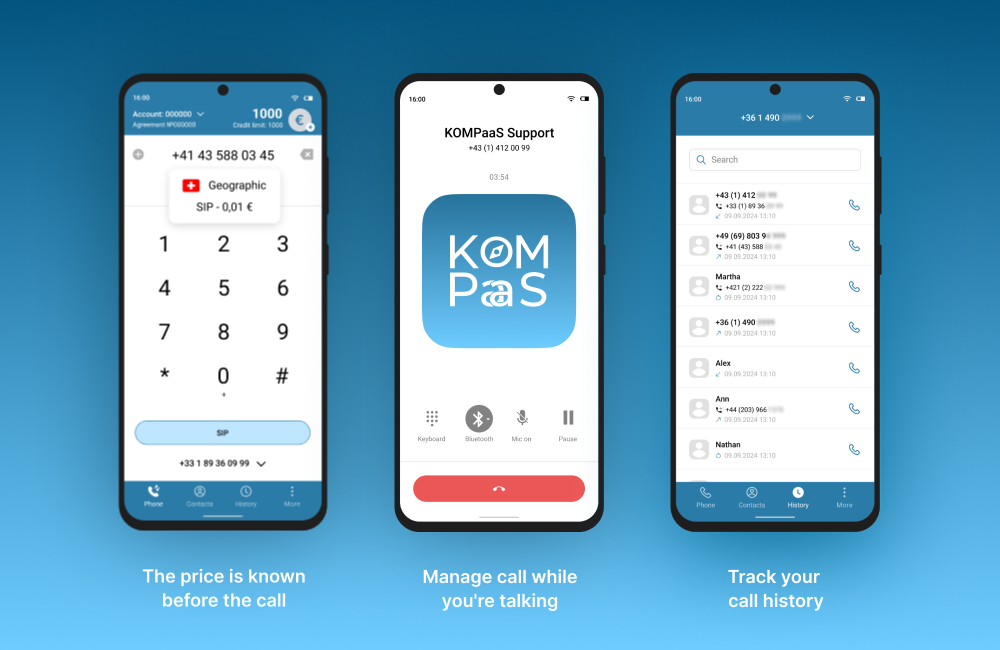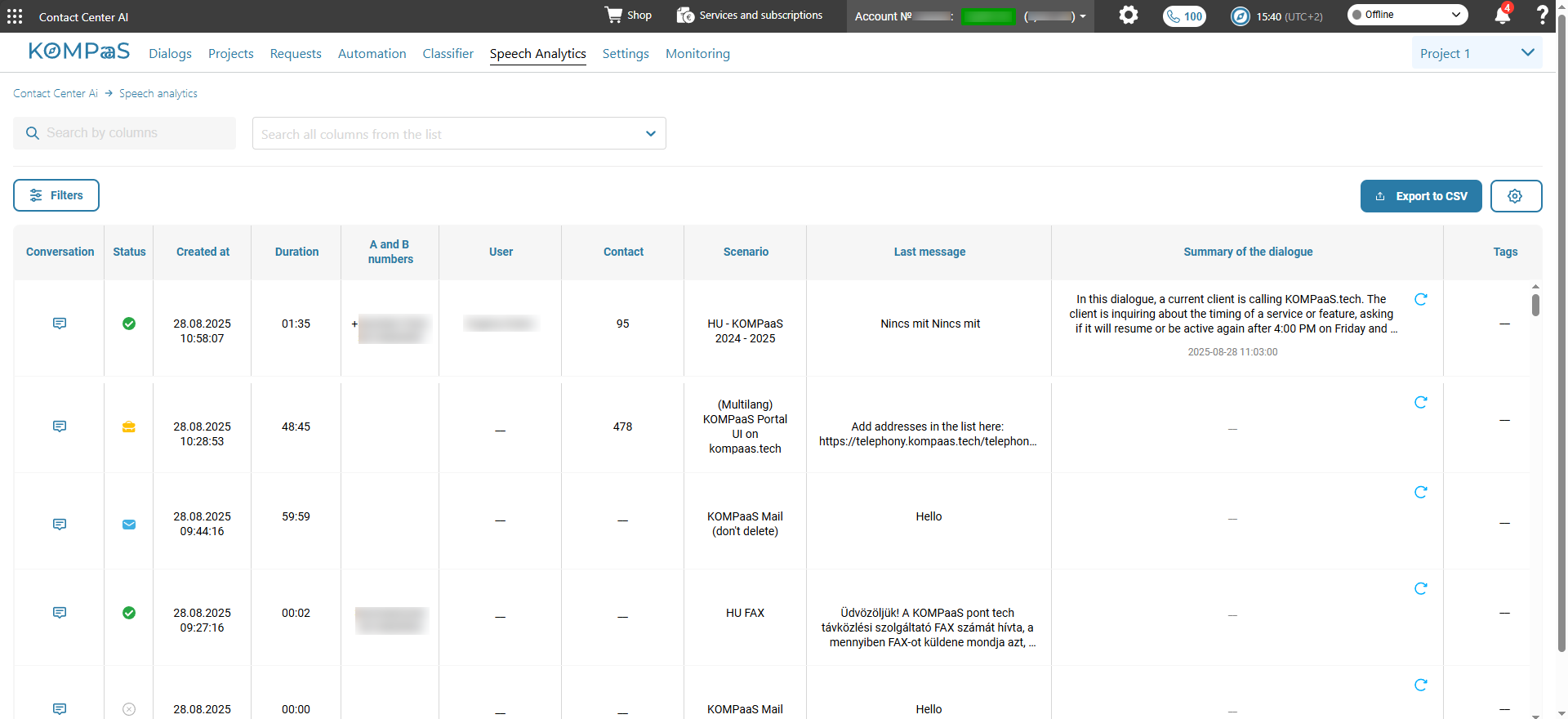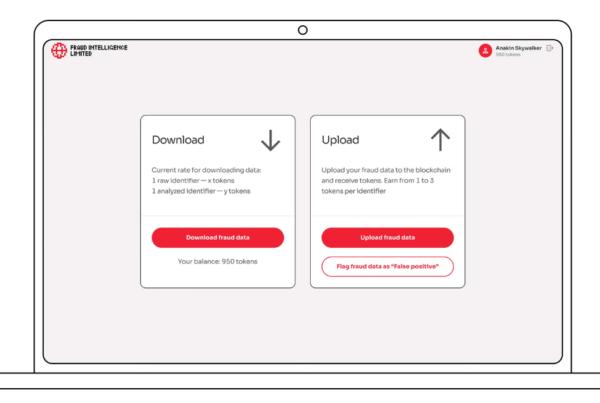In our 5 minutes with profiles, MEF members talk about their business, their aspirations for the future and the wider mobile industry.
This week Business Development & Marketing Director Liubov Martynova and Founder Alexander Melnikov introduce telephony services and cloud solutions provider, KOMPaaS.tech.
What does KOMPaaS.tech do?

KOMPaaS.tech provides telephony services and cloud solutions for small and medium-sized businesses, telecom operators, aggregators, and more. As a registered telecom operator and software developer, the company has been delivering large-scale projects since 2014.
Today, KOMPaaS.tech operates in five European countries – Austria, France, Germany, Hungary, and Slovakia – with its own infrastructure, including communication nodes, and all necessary regulatory approvals. We have Points of Presence (PoPs) in Vienna, Budapest, and Bratislava.
In the field of inter-operator relations, KOMPaaS.tech offers a wide range of services, including DID numbers (with more than 60,000 allocated by regulators), Domestic and International Interconnect, as well as SIP Trunking.
Beyond telecom services, KOMPaaS.tech develops Communication Platform-as-a-Service (CPaaS) solutions, enabling B2B clients to seamlessly integrate telephony with software products. Its portfolio includes a feature-rich Virtual PBX with more than 200 functions, geographic and nomadic numbers, AI-powered Contact Center, Automated Calls, Chatbots, and an AI Agent to be officially launched soon. All solutions are also available as White Label services.
When did you launch and what growth have you seen?
Over the past 2–3 years, one of the key areas of our development has been Telecom API technologies within our CPaaS platform for automating business communications. The Telecom API technology has proven to be highly adaptive and flexible, allowing solutions to be quickly tailored to individual needs. Modern no-code and low-code tools effectively address integration and compatibility challenges with client systems.
Our CPaaS platform allows organizations to integrate communication channels without the need to build their own infrastructure. This solution helps reduce costs, scale easily, and seamlessly combine fixed telephony with a Virtual PBX in one service. It also enables access to features such as call recording, conversation transcription, speech synthesis, and integration with popular CRM systems.
The main products we have launched during this period include: Automated Calls, Chatbots, AI-powered Contact Center with speech analytics, the KOMPaaS Softphone, as well as an expanded list of integrations. Among the newest integrations now available for our clients are MiniCRM, Make.com, and Google Contacts, with Microsoft Teams integration in its final stage of development and an official release planned for September 2025.
The Omnichannel AI Contact Center stands out with its ability to manage all communication channels from a single interface, significantly simplifying the handling of customer requests. Integrated AI analyzes dialogues, identifies topics and sentiment, provides knowledge-based prompts, and supports interactions in more than 100 languages.
In 2025, we released the KOMPaaS Softphone – a mobile app for making calls over the Internet using SIP telephony. This solution allows clients to use their home tariffs while on business trips or traveling worldwide, provided they have a stable mobile Internet or Wi-Fi connection. The app is ready to use right away without complicated setup – simply grant basic Android system permissions at first launch, and you can start making and receiving calls immediately.
Soon, we will also present our AI Agent, which differs significantly from previous generations of voice assistants and chatbots thanks to its ability to learn quickly, not only from a company’s knowledge base but also by leveraging all data available to AI.
The adoption of these technologies improves service standards, streamlines business processes, and creates competitive advantages across industries.
As a result, over the past few years, KOMPaaS.tech’s revenue from core platform services has grown by around 32%, while the number of clients has nearly doubled.
What are your main goals?
The key goal of KOMPaaS.tech over the next 3–5 years is to secure a leading position in the Unified Communications segment across the countries where we operate and to become one of the most trusted and in-demand providers of business telecom services.
Where do you see your company in three years’ time?
We will continue investing in the development of our platform to grow both our client base and customer satisfaction by delivering innovative features and highly adaptable solutions tailored to the individual needs of businesses.
In three years, we envision our company sustaining steady growth through the expansion and promotion of additional services within our telecom platform. This forecast is driven by the increasing adoption of the platform’s advanced capabilities, which clients recognize as essential tools for enhancing business efficiency.
A key focus of our strategy will be the rollout of AI-driven services – such as AI Agents and AI Contact Centers. These solutions will enable companies to automate routine interactions, provide 24/7 customer support, and leverage advanced analytics to improve service quality and decision-making.
What aspect of mobile is most exciting to you right now?
eSIM technology, which allows us to offer mobile services to our clients without requiring huge investments, thereby expanding the potential user base of KOMPaaS.tech.
What’s the most critical issue that will hit mobile within the next 12 months?
Over the next 12 months, we believe the mobile industry will continue preparing for the rollout of 6G. While a full-scale launch is expected closer to the end of the decade, operators and technology companies are already beginning tests and pilot projects.
6G is seen as the foundation for new use cases such as augmented reality, smart cities, and next-generation industrial IoT. The key challenges are related to infrastructure investment, inter-operator interoperability, and the need to establish unified standards.
Apart from your own, which mobile companies are the ones to watch in the year ahead?
Attention is to be focused on companies driving the development of telecom platforms as a service (CPaaS), integrating all major customer communication channels: mobile, fixed-line, chats, messengers, email, SMS, and more.
Among them telecom operators and CPaaS platform developers that unifies traditional telephony with a Virtual PBX, AI-powered Contact Centers, AI Agents, and beyond. These companies are setting the pace in delivering a more efficient, automated, and analytics-driven customer experience.








